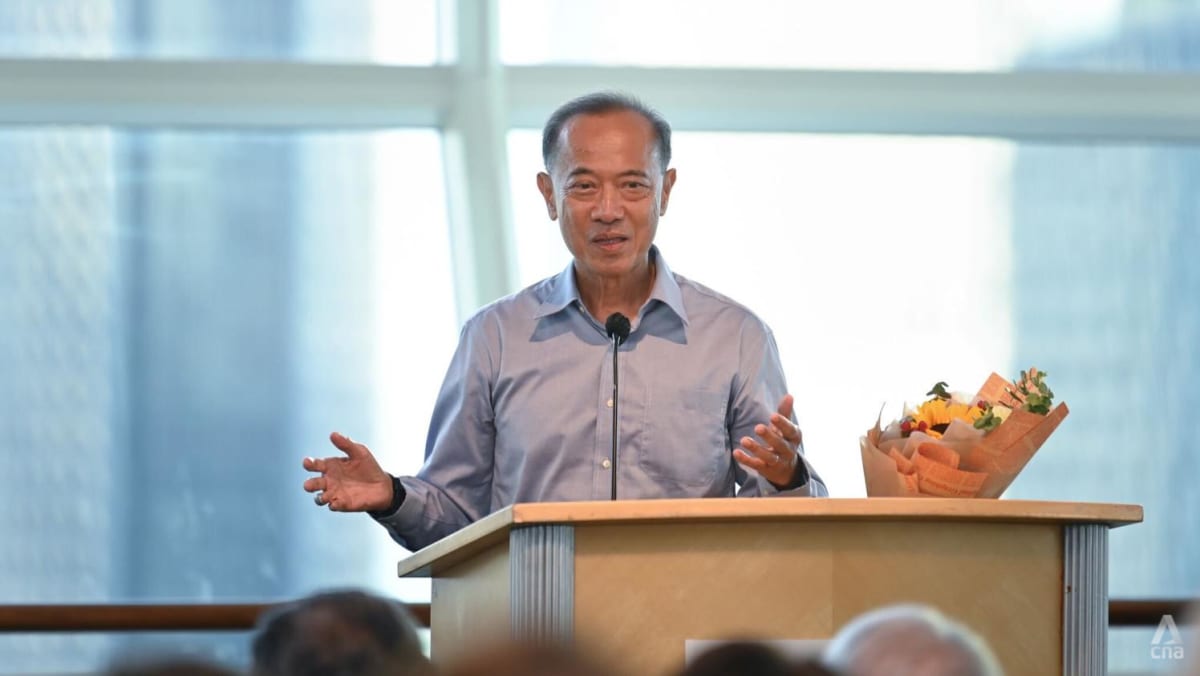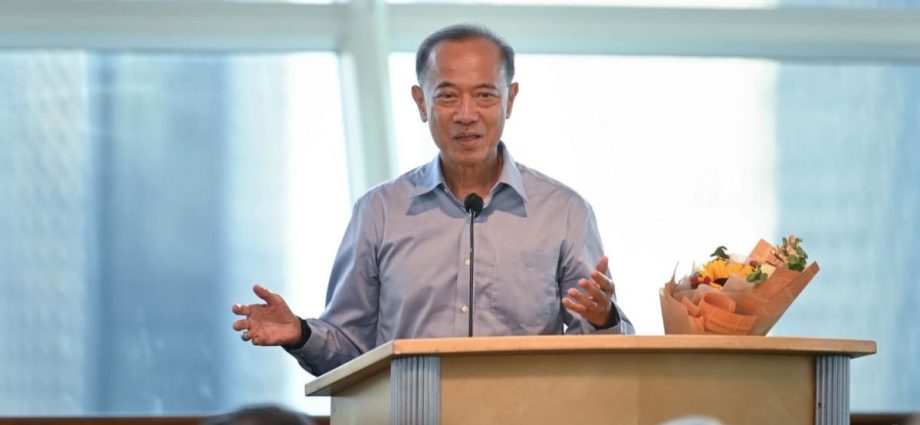
“SINGAPORE MUST NEVER BECOME A HOTEL”
At the book launch on Wednesday, an audience member highlighted the new Overseas Networks & Expertise Pass aimed to attract top talent. He asked how Singapore could strike a balance between bringing in diverse foreign talent while ensuring those who identify as Singaporeans continue to feel like they belong.
In response, Mr Yeo admitted he had wrestled with this question across all three series.
“I don’t think the debate will ever cease in Singapore because we live by our connections to the world, and our connections to the world are based upon the world being reflected in us,” he said, explaining that this diversity would naturally create tension.
“Singapore must never become a hotel; Singapore must always be a home. And (even as) we keep our doors open, we should never have it so open that those who are in the home no longer feel like they’re living in their own house but living in a hotel. Then we’ve gone too far. We have to strike a balance,” he added.
“But if we shut the doors and windows … then we kill ourselves. Striking this balance is the Singapore spirit.”
Along the same vein, Mr Yeo had referred to “citizenship tests” in his book, although he clarified that we should not understand this literally.
“The important thing is, when we accept new citizens, we’re accepting them (into) our family … We must find a way to create a process where Singaporeans are in the loop in accepting those who become citizens. It should not only be done by bureaucrats. It should not only be done according to rules or how much they’re prepared to invest,” he explained.
“There is an emotional component involved … which is vital. Otherwise we’re no longer a home. We must create a process which incorporates this into the citizenship approval process.”
YOUNG SINGAPOREANS SHOULD TRAVEL IN THE REGION
One way young Singaporeans can foster a greater appreciation for diversity would be to travel in the region, Mr Yeo encouraged.
In response to a question from a young audience member about how young people could develop greater appreciation for vastly different cultures, Mr Yeo noted the tendency for more young Singaporeans to head to Europe, Japan or Korea. They also tend to prefer learning European languages, Japanese or Korean, as compared to regional languages.
“It’s partly a holdover from the past, because they were dominant so we held them to be higher cultures, higher languages to which we aspire,” he said.
“If we look forward, the region will become much more important to us. And it’ll be good if among some students, there are those who show greater interest in the region and all its wonderful diversity, and to recognise these countries as part of who we are and what we are.”
Mr Yeo added that effort and a “certain change in mentality” is required to change this.
“If we succeed in changing the culture a little bit, the situation will improve. But even if we don’t, reality will force us to change, because the region will become more important to us. And by necessity, we’ll be forced to learn more about the region. Because if we don’t, we’ll suffer consequences,” he said.

